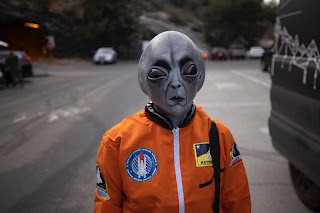If you're an average American, you drive a 2010 model car.
Well, that's not absolutely true. The average American car is 12.2 years old (meaning it's a 2009.8 model), but if you're in an average American family, you probably have two cars – one that was produced before 2010, one after. They average 12.2 years old.
That's the rather stunning data from S&P Global Mobility. American cars are an average of 12.2 years old!
This is the fifth straight year that American cars reached a new record for average age. Cars are two months older than they were a year ago (and who wouldn't want to be only two months older than they were a year ago?).
This is the continuation of a long-term trend. Back in the 1970s (the furthest back I could find reliable data for the average age of cars), our cars then were much, much, much newer. The average automobile in 1970 was 5.6 years old. By 1980, the average was 6.6, by 1990, it was 7.6 and by 2000 it was 9.0 years old.
Now the average is 12.2.
Really, the trend makes sense. Because despite what typical car guys say, the average car in 2022 is much more durable than one from 1970. Or 1980.
Our cars last longer because they're designed to last longer.
The Stanhopes are, in this respect, at least, typical Americans. Mrs. Brad and I each have a vehicle. They're the same make and model, although different eras of the cars.
I drive a 2005 Toyota Prius with more than 200,000 miles on it. It's old. There are new rattles. I suspect the mysterious parts that make it a "hybrid" will start falling off soon. The radio only picks up episodes of "The Lone Ranger" and the back seat is filled with "I Like Ike" posters. It has a rumble seat (whatever that is).
Mrs. Brad drives the newer car, which still seems space-age to me. It has dozens of gauges and buttons and knobs (really very few knobs, but I needed a third thing). It has a backup camera! It has cruise control that can measure how far the vehicle is behind other cars!
Her car is 10 years old, so none of those things are really new to a normal person. But to someone who drives a car with a rumble seat (whatever that is), it's miraculous.
So our cars are made better and last longer than they were 10, 20, 30, 40 or 50 years ago.
When we think of the glory days of American cars (I'll pick 1970, although I suspect most car guys would set that date a few years earlier), we think that old cars were better built for less money. Well, the average new car in 1970 cost about $3,500 and lasted 5.6 years. Adjusted for inflation, that's $26,300 in 2022 dollars. According to the Kelly Blue Book people, the average new car in 2022 cost about $46,000 (yikes!).
So modern cars last twice as long (or more), but cost twice as much. In terms of per-year expense, it's stayed pretty stable.
Kind of like the rumble seat (whatever that is) in my Prius.
Reach Brad Stanhope at bradstanhope@outlook.com.




